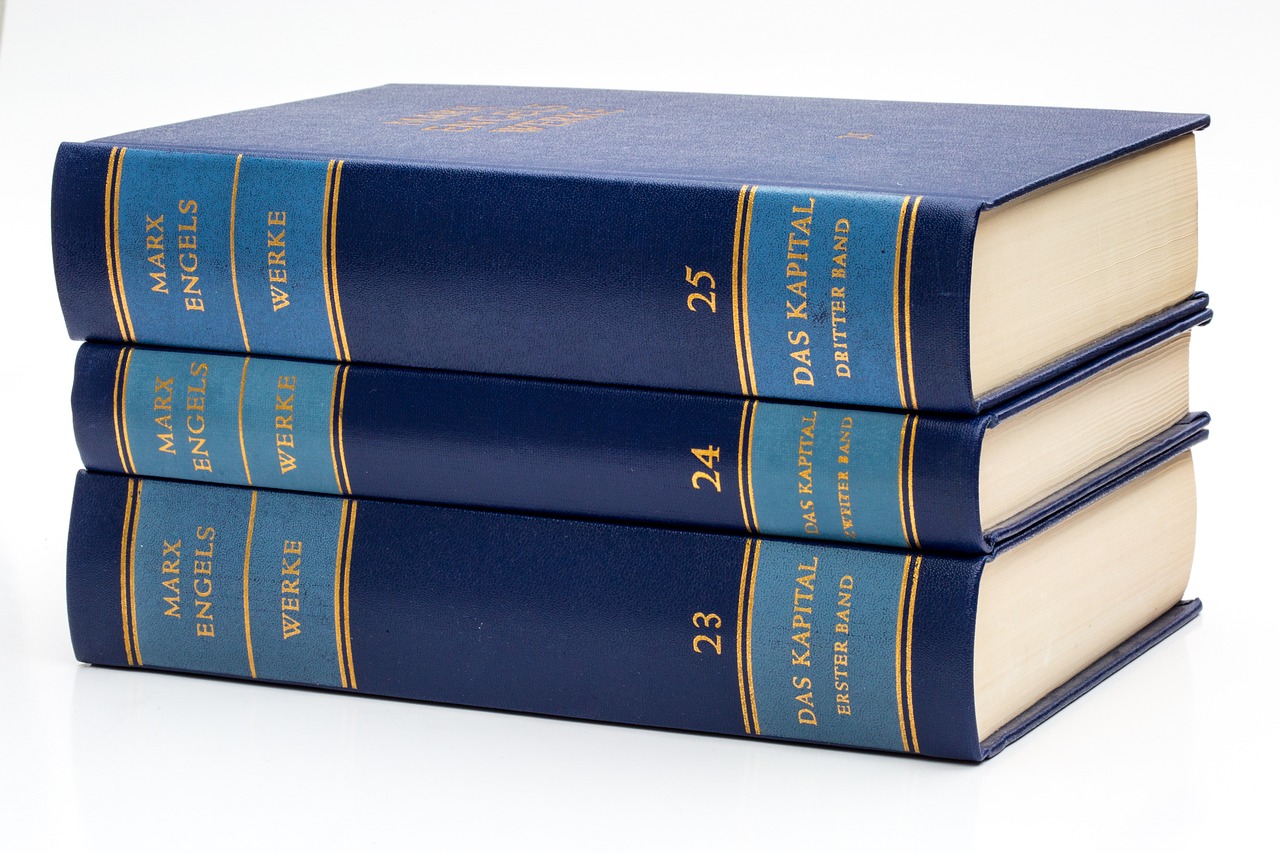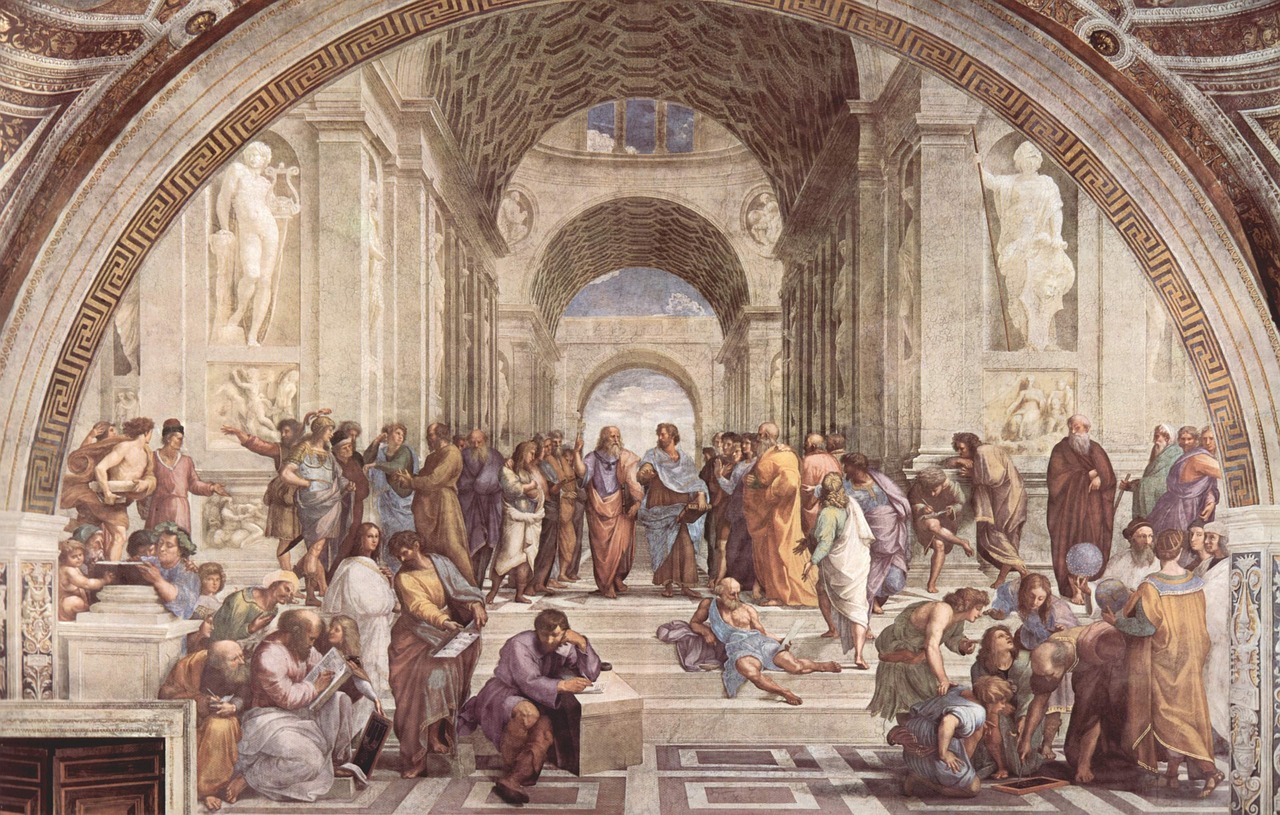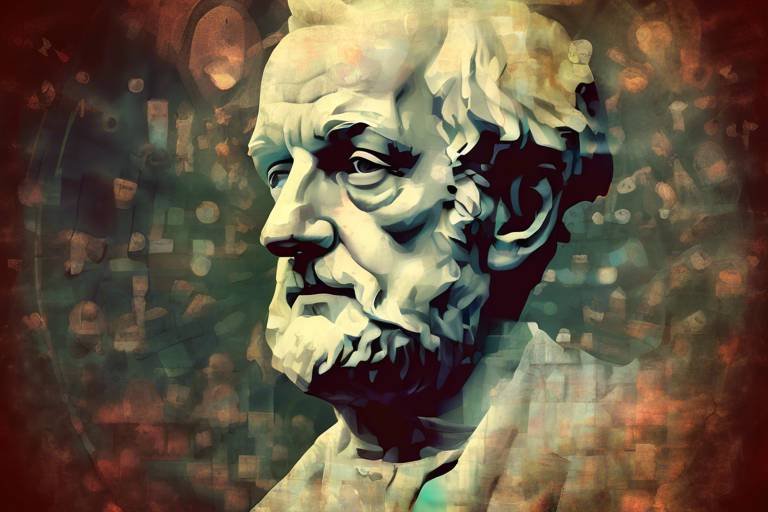How Did David Hume Impact Empiricism?
David Hume, a towering figure in the realm of philosophy, profoundly shaped the landscape of empiricism during the 18th century. His ideas not only challenged the prevailing notions of knowledge but also laid the groundwork for modern philosophical inquiry. Hume's emphasis on experience and observation as the primary sources of knowledge marked a significant departure from the rationalist traditions that dominated prior philosophical thought. By advocating for an empirical approach, he invited thinkers to reconsider what it means to know something. This article delves into Hume's key contributions to empiricism, his critiques of rationalism, and the lasting implications of his work on contemporary philosophy.
At the heart of Hume's philosophy lies the assertion that all knowledge originates from sensory experiences. He argued that our understanding of the world is not built on abstract reasoning or innate ideas but rather through direct interactions with our environment. This notion was revolutionary, as it challenged the established epistemological frameworks that prioritized reason over experience. Hume's empirical foundations established a new standard for epistemology, which emphasized that knowledge must be grounded in observable phenomena. In doing so, he encouraged a more scientific approach to philosophy, one that valued evidence and inquiry over speculation.
Hume's skepticism towards rationalism was a turning point in philosophical discourse. He questioned the validity of innate ideas and the reliance on reason as a source of knowledge. For Hume, the rationalists' confidence in the power of reason was misplaced; he believed that our understanding is deeply rooted in our experiences. This critique led to a significant shift in how philosophers approached the study of knowledge, steering the conversation towards a more empiricist perspective. By challenging the rationalist view, Hume opened the door for new ways of thinking about knowledge, perception, and reality.
One of Hume's most important distinctions is between impressions and ideas. He posited that all ideas are derived from impressions, which are the raw data of our sensory experiences. This means that when we think of a concept, it is ultimately rooted in something we have experienced firsthand. For instance, the idea of a "red apple" comes from the actual experience of seeing and touching a red apple. This differentiation reinforces Hume's empirical approach, illustrating how our understanding of the world is constructed from the building blocks of sensory experience. Hume's insights sparked further philosophical debates about the nature of knowledge and perception, prompting others to explore the implications of his work.
According to Hume, impressions are the immediate, vivid experiences we encounter. They serve as the foundation for all our knowledge and understanding. This perspective emphasizes the importance of empirical evidence in shaping our worldview. Without impressions, our ideas would lack substance and relevance. Hume's insistence on the primacy of impressions illustrates how our perception of reality is grounded in tangible experiences, challenging the abstract reasoning favored by rationalists.
In Hume's framework, ideas are not merely abstract concepts; they are intricately linked to the impressions that give rise to them. His analysis of how ideas are formed highlights the necessity of empirical evidence in constructing knowledge. For instance, when we think of "freedom," it is shaped by our experiences of choice and autonomy. Hume's challenge to the rationalist perspective encourages a more nuanced understanding of how we come to know what we know, emphasizing that our ideas are not innate but learned through experience.
Hume's exploration of causation is another critical area where he reshaped philosophical thought. He argued that our understanding of cause-and-effect relationships is not based on logical deduction but rather on habit and experience. For example, we might expect the sun to rise every morning not because we can logically deduce it, but because we have observed this pattern repeatedly. This perspective challenges the certainty often associated with causation, suggesting that our beliefs about cause and effect are rooted in our experiences rather than rational justification. Hume's insights have had profound implications for the philosophy of science, prompting a reevaluation of how we understand and establish causal relationships.
The impact of Hume's ideas extended far beyond his own time, significantly influencing later philosophers such as Immanuel Kant and the logical positivists. Kant, in particular, recognized Hume's contributions to his philosophical development. He sought to address the limitations of empiricism by synthesizing rationalism and empiricism, leading to a more comprehensive understanding of knowledge. The logical positivists, on the other hand, embraced Hume's empiricism, emphasizing verification and empirical evidence as the cornerstone of meaningful statements. Hume's influence can be seen as a catalyst for new philosophical movements and discussions surrounding knowledge and truth.
Immanuel Kant acknowledged the profound impact Hume had on his own philosophical journey. Hume's skepticism about causation and the nature of knowledge pushed Kant to explore the interplay between empiricism and rationalism. He argued that while our knowledge begins with experience, it is also shaped by the mind's inherent structures. This synthesis of ideas represents a significant development in the evolution of epistemology, demonstrating how Hume's critiques prompted a deeper exploration of the foundations of knowledge.
The logical positivists took Hume's empiricism a step further, emphasizing that meaningful statements must be verifiable through empirical evidence. This perspective extended Hume's influence into the 20th century and beyond, as philosophers began to prioritize observable phenomena over metaphysical speculation. By grounding knowledge in empirical verification, the logical positivists built upon Hume's legacy, shaping the course of modern philosophy and the philosophy of science.
- What is empiricism? Empiricism is a philosophical theory that states that knowledge comes primarily from sensory experience.
- How did Hume differentiate between impressions and ideas? Hume argued that impressions are direct sensory experiences, while ideas are the mental representations derived from those impressions.
- What was Hume's view on cause and effect? Hume believed that our understanding of cause-and-effect relationships is based on habit and experience, rather than logical deduction.
- Why is Hume considered influential in modern philosophy? Hume's critiques of rationalism and his emphasis on empiricism laid the groundwork for subsequent philosophical movements, including Kant's synthesis of rationalism and empiricism and the development of logical positivism.

Hume's Empirical Foundations
David Hume, a pivotal figure in the realm of philosophy, laid down the essential foundations of empiricism by championing the idea that knowledge is primarily derived from experience and observation. Before Hume, many philosophers placed a heavy emphasis on rationalism, believing that reason and innate ideas were the cornerstones of knowledge. Hume, however, turned this notion on its head, arguing that our understanding of the world is not a product of abstract reasoning but rather a result of our sensory experiences. This was nothing short of a revolutionary shift in the landscape of epistemology.
To fully grasp Hume's approach, it's essential to understand his perspective on experience. He posited that all human knowledge begins with impressions—the raw data of our sensory experiences. Whether it’s the warmth of the sun on our skin, the sound of a friend's laughter, or the vibrant colors of a sunset, these impressions are immediate and vivid. From these impressions, we derive ideas, which are essentially the mental representations of our sensory experiences. This distinction between impressions and ideas is crucial in Hume's philosophy, as it underscores his belief that knowledge is fundamentally grounded in what we can perceive.
Moreover, Hume's empirical framework challenges us to reconsider the validity of concepts that lack empirical backing. He famously questioned the reliability of innate ideas—those thoughts we supposedly have from birth. Instead, he argued that every idea we possess is ultimately traceable to a corresponding impression. This radical assertion not only reshaped the way we think about knowledge but also paved the way for future philosophical inquiry.
In Hume's view, the process of acquiring knowledge can be summarized as follows:
| Step | Description |
|---|---|
| 1 | Impressions: Direct sensory experiences that form the basis of knowledge. |
| 2 | Ideas: Mental representations derived from impressions. |
| 3 | Empirical Evidence: The necessity of observable evidence to support knowledge claims. |
This empirical foundation laid by Hume significantly influenced the trajectory of modern philosophy. By prioritizing observation and experience, he encouraged subsequent thinkers to explore the nature of knowledge in a way that was more aligned with scientific inquiry. His insistence on empirical evidence as a prerequisite for understanding pushed the boundaries of philosophical thought, leading to a more rigorous examination of how we come to know what we know.
In conclusion, Hume's contributions to empiricism cannot be overstated. His focus on experience as the bedrock of knowledge not only challenged the prevailing rationalist doctrines but also opened the door for a more scientific approach to philosophy. As we delve deeper into his critiques of rationalism and his exploration of causation, it becomes evident that Hume's legacy continues to resonate in contemporary philosophical discussions.
- What is empiricism? Empiricism is a philosophical theory that asserts that knowledge comes primarily from sensory experience.
- How did Hume challenge rationalism? Hume questioned the validity of innate ideas and emphasized that all knowledge arises from sensory experiences.
- What are impressions and ideas according to Hume? Impressions are direct sensory experiences, while ideas are mental representations derived from those impressions.
- Why is Hume's work significant? Hume's work laid the groundwork for modern empiricism and influenced many later philosophers, shaping the discourse on knowledge and perception.

Critique of Rationalism
David Hume's critique of rationalism is one of the cornerstones of his philosophical legacy. He approached the rationalist perspective with a healthy dose of skepticism, challenging the very foundations of knowledge that were built upon innate ideas and pure reason. Hume argued that rationalism, which often posited that reason alone could lead to knowledge, was fundamentally flawed. Instead, he believed that our understanding of the world is rooted in experience and observation.
In Hume's view, rationalists like Descartes and Leibniz placed too much emphasis on reason as the primary source of knowledge. He questioned how we could trust the validity of innate ideas—those concepts we supposedly hold within us from birth. Hume famously argued that if we cannot trace an idea back to a specific sensory experience, then we should be cautious about accepting it as knowledge. This radical shift in thinking forced philosophers to reconsider the nature of knowledge itself.
Hume's skepticism led to a significant shift in philosophical discourse. He highlighted the limitations of human reason and emphasized that our beliefs about the world are often shaped by our experiences rather than by logical deductions. This is particularly evident in his exploration of causation, where he argued that our understanding of cause-and-effect relationships is not derived from reason but from habitual experiences. For instance, when we see a ball rolling down a hill, we come to expect that it will continue to roll due to our past experiences with similar situations, not because we can deduce a universal law of motion.
To illustrate this point, consider the following table that outlines the differences between rationalist and empiricist views:
| Aspect | Rationalism | Empiricism |
|---|---|---|
| Source of Knowledge | Innate ideas and reason | Experience and observation |
| Understanding of Causation | Logical deduction | Habit and experience |
| View on Human Understanding | Trust in reason | Skepticism towards reason |
By questioning the validity of rationalism, Hume paved the way for a more profound understanding of how we acquire knowledge. He suggested that we should be more cautious about what we claim to know and recognize that much of our understanding is contingent upon our personal experiences. This critique not only reshaped the landscape of philosophy but also laid the groundwork for modern empiricism, influencing countless thinkers who followed in his footsteps.
In summary, Hume's critique of rationalism was revolutionary. It challenged the dominance of reason in philosophical thought and emphasized the importance of empirical evidence. This shift not only influenced his contemporaries but also set the stage for future philosophical explorations, making Hume a pivotal figure in the evolution of modern philosophy.
- What is Hume's main argument against rationalism? Hume argues that knowledge is primarily derived from experience and observation, not from innate ideas or pure reason.
- How did Hume's skepticism influence later philosophers? Hume's skepticism led to a reevaluation of the sources of knowledge, influencing philosophers like Kant and the logical positivists.
- What is the significance of Hume's distinction between impressions and ideas? This distinction reinforces the idea that all knowledge is rooted in sensory experiences, challenging rationalist claims about innate knowledge.

Impressions and Ideas
David Hume's philosophy revolves around the distinction between impressions and ideas, a fundamental concept that underpins his entire empirical approach. To put it simply, impressions are the raw data of our sensory experiences—what we see, hear, taste, touch, and smell. They are vivid, immediate, and serve as the building blocks of knowledge. On the other hand, ideas are the mental representations we form based on these impressions; they are less forceful and more abstract. Think of impressions as the vibrant colors on an artist's palette, while ideas are the paintings created from those colors. This analogy illustrates how our understanding of the world is deeply rooted in our sensory experiences.
Hume argued that all ideas originate from impressions, which means that without direct sensory experiences, we cannot form any meaningful concepts. This radical idea challenges the rationalist belief that we can derive knowledge through reason alone. For instance, consider the concept of a unicorn. While we can imagine a unicorn, our idea of it is entirely based on our impressions of horses and the qualities we associate with them, such as having a horn. In this way, Hume reinforces the notion that our knowledge is not innate but rather constructed from our interactions with the world.
Furthermore, Hume’s analysis of the formation of ideas emphasizes the importance of empirical evidence. He posited that if we cannot trace an idea back to a corresponding impression, it should be regarded with skepticism. This perspective not only challenges the rationalist view but also sets a precedent for future philosophical inquiries into the nature of knowledge and perception. It raises essential questions: What happens to ideas that cannot be grounded in experience? Are they mere fantasies or do they hold some form of validity? Hume’s insistence on the empirical basis of knowledge encourages us to critically evaluate the sources of our beliefs.
In essence, Hume's distinction between impressions and ideas lays the foundation for a more rigorous understanding of knowledge. By asserting that all ideas must be rooted in sensory experience, he invites us to engage more deeply with the world around us. This approach not only reshapes our understanding of knowledge but also impacts how we perceive reality itself. In doing so, Hume not only critiques previous philosophical notions but also opens the door for future thinkers to explore the intricate relationship between experience and understanding.
- What are impressions according to Hume?
Impressions are the immediate and vivid sensory experiences we encounter, serving as the foundation for all knowledge.
- How do ideas relate to impressions?
Ideas are mental representations derived from impressions, and without impressions, we cannot form meaningful ideas.
- Why is Hume's distinction between impressions and ideas important?
It challenges the rationalist view of knowledge and emphasizes the necessity of empirical evidence in understanding the world.

The Role of Impressions
David Hume's philosophy hinges on the concept of impressions, which he defines as the raw data of our sensory experiences. Think of impressions as the vivid snapshots of reality that flood our minds when we see, hear, touch, taste, or smell something. These impressions are not just fleeting moments; they are the building blocks of all our knowledge. Hume argued that without these direct sensory experiences, we would be left in a fog of uncertainty, unable to form any coherent understanding of the world around us.
In Hume's view, impressions are the most immediate and forceful elements of our experience. They are like the bright colors on an artist's palette, vibrant and full of life, waiting to be mixed into the more subdued hues of our ideas. When we experience something—like the warmth of the sun on our skin or the taste of a ripe strawberry—these sensations leave a deep imprint on our consciousness. Hume posited that all ideas, which are less vivid and more abstract, are ultimately derived from these impressions. In essence, our ideas are like shadows cast by the bright light of our impressions.
To illustrate this further, consider the following points:
- Impressions are immediate: They occur in real-time and are felt directly without any mediation.
- Impressions are more forceful: They are more intense than ideas, which can often be vague or diluted.
- Impressions lead to ideas: Hume believed that every idea we have can be traced back to a corresponding impression.
This fundamental distinction between impressions and ideas not only reinforces Hume's empirical approach but also challenges the rationalist view that reason alone can lead us to knowledge. For Hume, the role of impressions is paramount; they serve as the foundation upon which our understanding is built. Without these sensory experiences, our minds would be like an empty canvas, lacking the colors and textures that make up the rich tapestry of human knowledge.
Moreover, Hume's emphasis on impressions as the basis of knowledge has significant implications for how we perceive reality. If our ideas are mere reflections of our impressions, then the accuracy of our knowledge is directly tied to the reliability of our sensory experiences. This raises intriguing questions about the nature of perception and the potential for error. For instance, consider how our senses can sometimes deceive us—like when we see an optical illusion. Hume's framework compels us to critically examine the reliability of our impressions and, consequently, the ideas we form from them.
In conclusion, Hume's exploration of the role of impressions is a vital component of his empirical philosophy. By grounding knowledge in sensory experience, he not only challenges the rationalist tradition but also lays the groundwork for modern epistemology. His insights encourage us to appreciate the richness of our sensory experiences and recognize their crucial role in shaping our understanding of the world.
- What are impressions according to Hume? Impressions are the immediate and vivid sensory experiences that form the foundation of all knowledge.
- How do impressions differ from ideas? Impressions are more forceful and direct, while ideas are less vivid and are derived from impressions.
- Why are impressions important in Hume's philosophy? They challenge rationalist views and emphasize that knowledge must be grounded in sensory experience.

Conceptual Analysis of Ideas
David Hume's approach to the is a cornerstone of his empiricist philosophy. He argued that all ideas originate from impressions, which are the raw data of sensory experience. This means that our understanding of the world is built upon what we perceive through our senses. Imagine trying to construct a house without any bricks; it simply wouldn't stand. Similarly, Hume believed that without these fundamental impressions, our ideas would lack substance and meaning.
To clarify this relationship, Hume categorized impressions into two types: simple impressions and complex impressions. Simple impressions are the basic sensations we experience, such as the color red or the taste of sweetness. Complex impressions, on the other hand, are formed by combining simple impressions, like the idea of a red apple, which encompasses both the color and the taste. This process of combining impressions to form ideas underscores Hume's emphasis on empirical evidence as the foundation of knowledge.
Furthermore, Hume's analysis led him to conclude that ideas could be analyzed and critiqued based on their origins. If an idea cannot be traced back to a corresponding impression, it is likely to be meaningless. For example, the concept of a "unicorn" cannot be directly linked to any sensory experience, as it is a fabrication of the imagination. Hume's rigorous standards for evaluating ideas challenged the prevailing rationalist perspective, which often accepted innate ideas as valid without empirical verification.
In essence, Hume's conceptual analysis of ideas reshaped how we think about knowledge and perception. It invites us to question the validity of our beliefs and encourages a more critical approach to understanding. By insisting that all ideas must be rooted in sensory experience, Hume not only laid the groundwork for modern empiricism but also opened the door for future philosophical inquiries into the nature of reality and our understanding of it.
- What are Hume's key contributions to empiricism?
Hume emphasized the importance of sensory experience as the basis for knowledge, challenging rationalist ideas and establishing a framework for modern empiricism.
- How did Hume differentiate between impressions and ideas?
Hume categorized impressions as direct sensory experiences, while ideas are derived from these impressions, highlighting the foundational role of experience in forming knowledge.
- What is the significance of cause and effect in Hume's philosophy?
Hume argued that our understanding of causation is based on habit and experience rather than logical deduction, which reshaped the philosophy of science.
- How did Hume influence later philosophers?
Hume's ideas significantly impacted philosophers like Kant and the logical positivists, who built upon his empiricist framework to explore new philosophical movements.

Cause and Effect
When it comes to the concept of , David Hume's contributions are nothing short of revolutionary. He took a deep dive into how we understand causation, challenging the long-held belief that we can deduce cause-and-effect relationships through pure reason. Instead, Hume argued that our understanding of causation is rooted in our experiences and the habits we form over time. Think of it like this: if you touch a hot stove and get burned, you learn to associate the act of touching the stove with pain. This association, built on experience, is what Hume believed to be the essence of causation.
Hume highlighted that we often jump to conclusions about cause and effect based on patterns we observe, but these conclusions are not necessarily grounded in logical certainty. For instance, if you see the sun rise every morning, you might assume it will rise again tomorrow. However, Hume would argue that this belief is based on habit and observation, not an absolute certainty that the sun must rise. He famously stated, “All events seem to be connected together by a chain of causes and effects,” but he was quick to point out that this connection is not something we can see or prove logically—it's something we infer from our experiences.
To illustrate Hume's perspective on causation further, consider the following table that summarizes his key ideas:
| Aspect | Hume's View |
|---|---|
| Nature of Causation | Based on habit and experience, not logical deduction. |
| Certainty of Cause and Effect | Not absolute; relies on past experiences and patterns. |
| Role of Observation | Critical in forming our understanding of causal relationships. |
This approach to causation had profound implications for the philosophy of science. It urged philosophers and scientists alike to reconsider how they establish scientific laws and theories. Instead of relying solely on deductive reasoning, Hume's emphasis on empirical evidence pushed for a more observational approach, one that recognizes the limitations of human reasoning. In essence, he was saying, “Hey, let’s not get too carried away with our logical deductions; let’s look at what the world is actually showing us!”
In summary, Hume’s exploration of cause and effect is a cornerstone of his empirical philosophy. By emphasizing that our understanding of causation is built on experience rather than pure reason, he opened the door for modern scientific inquiry and laid the groundwork for future philosophical discussions. His insights remind us that while we may seek certainty in our understanding of the world, much of what we know is shaped by our experiences and the patterns we observe.

Influence on Later Philosophers
David Hume's impact on philosophy cannot be overstated; his ideas reverberated through the ages, profoundly influencing a multitude of thinkers who came after him. One of the most notable philosophers to grapple with Hume's work was Immanuel Kant. Kant found himself at a philosophical crossroads, recognizing that Hume's skepticism regarding causation and knowledge posed significant challenges to rationalism. In fact, Kant famously remarked that Hume "awoke" him from his "dogmatic slumber." This awakening prompted Kant to synthesize the insights of both rationalism and empiricism, ultimately leading to his own critical philosophy, which sought to bridge the gap between these two schools of thought.
But Hume's influence didn't stop there. His empirical approach also laid the groundwork for the emergence of the logical positivists in the 20th century. These philosophers embraced Hume’s emphasis on verification and empirical evidence, arguing that meaningful statements must be either empirically verifiable or analytically true. This focus on language and scientific rigor can be seen as a direct lineage from Hume's original ideas about knowledge and experience.
To illustrate Hume's lasting impact, consider the following table that outlines key philosophers influenced by Hume and their respective contributions:
| Philosopher | Contribution |
|---|---|
| Immanuel Kant | Synthesized rationalism and empiricism, developing the concept of transcendental idealism. |
| John Stuart Mill | Advanced empiricism in ethics and social theory, emphasizing experience in moral reasoning. |
| Logical Positivists | Focused on the verification principle, asserting that knowledge must be grounded in empirical evidence. |
| Wilfrid Sellars | Critiqued the "myth of the given," arguing against the idea that sensory experiences can serve as an unmediated foundation for knowledge. |
Hume's legacy is evident in how these philosophers grappled with the questions he raised. They didn't just take his ideas at face value; instead, they engaged with them, challenged them, and built upon them, leading to rich philosophical debates that continue to this day. Hume's insistence on the importance of experience as a source of knowledge has become a cornerstone of modern philosophy, influencing various fields such as science, ethics, and epistemology.
As we reflect on Hume's influence, it's clear that he didn't just shape the philosophical landscape of his time; he created ripples that reached far beyond his own era. His thoughts on empiricism and skepticism continue to provoke discussion and inspire new generations of thinkers, ensuring that his place in the annals of philosophy remains secure.
- What is empiricism? Empiricism is a philosophical theory that emphasizes experience and observation as the primary sources of knowledge.
- How did Hume challenge rationalism? Hume questioned the validity of innate ideas and reason, arguing that knowledge is derived from sensory experiences.
- What is the significance of Hume's impressions and ideas? Hume distinguished between impressions (direct sensory experiences) and ideas (derived from impressions), reinforcing the idea that knowledge is rooted in experience.
- What was Kant's response to Hume? Kant acknowledged Hume's influence and sought to synthesize rationalism and empiricism, leading to his own critical philosophy.

Kant's Response to Hume
Immanuel Kant's philosophical journey was profoundly influenced by the work of David Hume. Hume's skepticism regarding the foundations of knowledge and his critiques of rationalism posed significant challenges that Kant felt compelled to address. In fact, Kant famously remarked that Hume "awoke him from his dogmatic slumber," prompting him to reconsider the relationship between empiricism and rationalism.
Kant recognized that Hume's assertion that all knowledge originates from sensory experience was a pivotal point in philosophy. However, he believed that Hume's empiricism fell short by neglecting the role of the mind in shaping our understanding of the world. For Kant, while experience is crucial, it is the innate structures of the mind that organize and interpret these experiences, leading to a more comprehensive account of knowledge.
To illustrate this, Kant proposed a synthesis of both empiricism and rationalism. He argued that while our knowledge begins with experience, it is also shaped by a priori concepts—ideas that exist independently of experience, such as space and time. These concepts act as the lens through which we perceive the world, allowing us to make sense of our experiences in a coherent manner. This perspective marked a significant turning point in epistemology and opened new avenues for understanding how we acquire knowledge.
In his seminal work, Critique of Pure Reason, Kant outlined his theory of knowledge, which can be summarized in the following key points:
| Key Concept | Description |
|---|---|
| A Priori Knowledge | Knowledge that is independent of experience, such as mathematical truths. |
| A Posteriori Knowledge | Knowledge that is dependent on experience, such as scientific observations. |
| Categories of Understanding | Innate concepts that structure our experiences, such as causality and substance. |
Kant's approach effectively bridged the gap between Hume's empiricism and rationalism, asserting that while our knowledge is grounded in experience, it is also shaped by the fundamental structures of our cognitive faculties. This integration not only addressed the limitations identified by Hume but also laid the groundwork for future philosophical inquiry.
Moreover, Kant's response to Hume had lasting implications for the development of modern philosophy. By emphasizing the interplay between experience and rational thought, Kant influenced a wide range of philosophical movements, including idealism and phenomenology. His work encouraged philosophers to explore the complexities of human cognition and the nature of reality, leading to rich discussions that continue to resonate in contemporary philosophy.
In summary, Kant's engagement with Hume's ideas was not merely a reaction but a transformative moment in the history of philosophy. By synthesizing the insights of empiricism and rationalism, Kant forged a new path that challenged previous notions of knowledge and provided a robust framework for understanding the intricate relationship between experience and thought.
- What is the main difference between Hume and Kant's philosophy?
Hume emphasized that knowledge comes solely from sensory experiences, while Kant believed that the mind plays a crucial role in organizing and interpreting these experiences. - How did Kant's ideas influence modern philosophy?
Kant's synthesis of empiricism and rationalism opened new discussions in epistemology and influenced various philosophical movements, including idealism and phenomenology. - What is a priori knowledge according to Kant?
A priori knowledge refers to knowledge that is independent of experience, such as mathematical truths and fundamental concepts like space and time.

Logical Positivism and Hume
When we talk about logical positivism, it’s essential to recognize how deeply rooted its principles are in the works of David Hume. This philosophical movement emerged in the early 20th century, primarily through the Vienna Circle, and sought to synthesize the empiricist ideas that Hume championed with a rigorous scientific approach to knowledge. Hume's insistence on empirical evidence as the cornerstone of meaningful statements laid the groundwork for logical positivists, who further emphasized that for a statement to be considered meaningful, it must be either empirically verifiable or analytically true.
One of the most significant contributions of Hume to logical positivism is his critique of metaphysics. Hume argued that many metaphysical claims were not grounded in empirical observation and thus lacked meaning. This perspective resonated with the logical positivists, who sought to eliminate nonsensical propositions from philosophy. For instance, statements about the existence of a deity or the nature of the universe, which cannot be tested or observed, were deemed meaningless by the logical positivists, echoing Hume's skepticism.
To illustrate this connection, let’s consider a table that summarizes the key principles of logical positivism and their relation to Hume’s ideas:
| Logical Positivism Principles | Relation to Hume |
|---|---|
| Verification Principle | Aligns with Hume’s assertion that knowledge must be rooted in experience. |
| Rejection of Metaphysics | Reflects Hume’s critique of unsupported claims beyond empirical evidence. |
| Focus on Language and Meaning | Inspired by Hume’s analysis of how language relates to our sensory experiences. |
Moreover, logical positivism took Hume's empiricism a step further by attempting to formulate a scientific foundation for philosophy. The logical positivists argued that philosophy should not merely analyze language but also contribute to the advancement of science. They believed that through rigorous logical analysis and a focus on empirical data, philosophy could achieve the same level of certainty as the natural sciences. This was a bold claim, and it was heavily influenced by Hume’s work, which consistently prioritized observation over abstract reasoning.
In conclusion, the relationship between logical positivism and David Hume is a fascinating interplay of ideas that reshaped the landscape of modern philosophy. Hume’s emphasis on empirical evidence and his critique of metaphysical claims laid a robust foundation upon which logical positivists built their arguments. By advocating for a philosophy grounded in verification and scientific inquiry, they not only honored Hume’s legacy but also propelled philosophical discourse into a new era of clarity and rigor.
- What is logical positivism?
Logical positivism is a philosophical movement that asserts that only statements verifiable through direct observation or logical proof are meaningful.
- How did David Hume influence logical positivism?
Hume's emphasis on empirical evidence and critique of metaphysics significantly shaped the principles of logical positivism, particularly the rejection of non-empirical claims.
- What is the verification principle?
The verification principle states that a statement is only meaningful if it can be verified through empirical observation or is analytically true.
Frequently Asked Questions
- What is empiricism and how did Hume contribute to it?
Empiricism is the philosophical belief that knowledge comes primarily from sensory experience. David Hume significantly contributed to this philosophy by emphasizing that our understanding of the world is rooted in what we observe and experience, challenging earlier notions that relied heavily on rationalism and innate ideas.
- How did Hume critique rationalism?
Hume critiqued rationalism by questioning the validity of innate ideas and the reliance on reason as the sole source of knowledge. He argued that our understanding is shaped by experiences rather than abstract reasoning, leading to a major shift in philosophical thought towards empiricism.
- What are impressions and ideas according to Hume?
In Hume's philosophy, impressions are the raw data of experience—what we directly perceive through our senses. Ideas, on the other hand, are the mental representations of these impressions. Hume argued that all ideas originate from impressions, reinforcing the importance of empirical evidence in knowledge formation.
- What is Hume's view on cause and effect?
Hume's view on cause and effect challenges the traditional understanding of causation. He posited that our belief in cause-and-effect relationships is not derived from logical deduction but rather from habit and repeated experiences. This perspective reshapes our understanding of how we perceive relationships in the world.
- How did Hume influence later philosophers?
Hume's influence on later philosophers, such as Immanuel Kant and the logical positivists, is profound. Kant acknowledged that Hume's work prompted him to synthesize rationalism and empiricism for a more comprehensive understanding of knowledge. The logical positivists built on Hume's ideas by emphasizing the importance of empirical verification in meaningful statements.



















